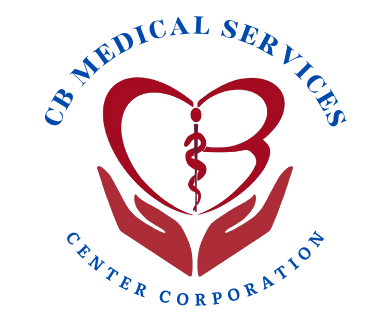Location: 57 General Luna St. Brgy. San Agustin, Malabon City A well-stocked home pharmacy can save you time, stress, and even money during minor illnesses and emergencies. Whether you have a headache, fever, allergy attack, or small wound, having the right medications on hand means you don’t have to rush to the pharmacy at the last minute. But what exactly should you keep in your home medical kit? We’ve put together a list of 10 essential pharmacy items that every household should have. Here’s a list of 10 must-have pharmacy essentials every household should keep. Pharmacy Must-Haves 1. Pain Relievers & Fever Reducers Why you need it: Helps relieve headaches, muscle pain, and fever.Examples: Paracetamol, Ibuprofen, Aspirin Tip: Paracetamol is best for fever, while Ibuprofen can also help with swelling and inflammation. 2. Cough & Cold Medicine Why you need it: Essential for treating cough, sore throat, and nasal congestion.Examples: Cough syrups, decongestants, throat lozenges Tip: If you have high blood pressure, choose a decongestant-free option to avoid increased BP. 3. Allergy Medications (Antihistamines) Why you need it: Treats seasonal allergies, skin rashes, and insect bites.Examples: Cetirizine (Zyrtec), Loratadine (Claritin), Diphenhydramine (Benadryl) Tip: Loratadine and Cetirizine won’t make you sleepy, while Diphenhydramine might. 4. Wound Care & First-Aid Kit Why you need it: For treating small cuts, wounds, and burns.Essentials: Bandages, antiseptic wipes, betadine, alcohol, gauze, and medical tape Tip: Use antiseptic wipes before applying a bandage to prevent infection. 5. Stomach Remedies Why you need it: Helps with indigestion, acid reflux, bloating, and diarrhea.Examples: Antacids (Gaviscon, Maalox), Loperamide (Imodium) for diarrhea, ORS (Oral Rehydration Salts) Tip: Activated charcoal can help with food poisoning or gas. 6. Vitamins & Supplements Why you need it: Boosts immune system, energy, and overall health.Examples: Vitamin C, Iron, Multivitamins, Calcium Tip: Take Vitamin C with food to prevent stomach irritation. 7. Thermometer & Blood Pressure Monitor Why you need it: Helps track fever and blood pressure at home. Tip: A digital thermometer is easier to use and more accurate than traditional mercury ones. 8. Oral Care & Sore Throat Relief Why you need it: Helps with mouth sores, gum infections, and sore throat.Examples: Antibacterial mouthwash, throat spray, lozenges Tip: Gargling with warm salt water can also soothe sore throats. 9. Emergency Contacts & Prescription Medications Why you need it: In case of chronic conditions like hypertension, diabetes, or asthma. Tip: Keep a list of emergency numbers (doctor, nearest hospital, pharmacy) on your fridge or phone. 10. Ice Packs & Heat Packs Why you need it: Helps with swelling, injuries, and muscle pain relief. Tip: Use ice packs for swelling and heat packs for muscle stiffness. Having these pharmacy essentials at home can prepare you for unexpected health issues and help you manage minor conditions without rushing to the hospital. Need to restock? Visit our Pharmacy Today!
Dialysis Explained: How It Works & What to Expect
Location: 57 General Luna St. Brgy. San Agustin, Malabon City If you or a loved one has been diagnosed with Chronic Kidney Disease (CKD), you may have been told that dialysis is necessary. But what exactly is dialysis, and how does it help? Dialysis is a life-saving treatment that takes over the function of your kidneys when they can no longer filter waste. This guide will explain how dialysis works, what to expect, and how to prepare for treatment. How Dialysis Works What is Dialysis? Dialysis is a medical procedure that removes excess waste, toxins, and fluids from the blood when the kidneys can’t do so. There are two main types: Hemodialysis – A machine that filters your blood outside your body. Peritoneal Dialysis – A special fluid in your abdomen helps clean your blood. What Happens During a Dialysis Session? – A nurse connects you to a dialysis machine through a vascular access point. – Your blood is drawn, filtered, and returned to your body. – Sessions last 3-5 hours at a dialysis center, 3 times a week. Tip: Stay comfortable during sessions by bringing a book or music! Need Dialysis? Schedule a Consultation Today!


